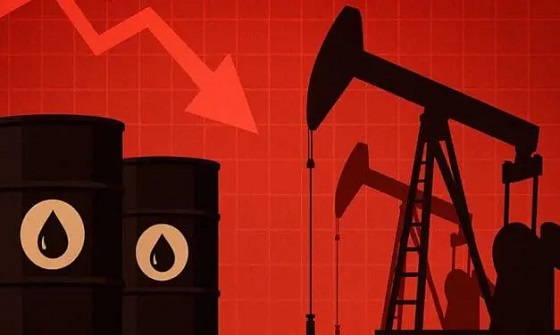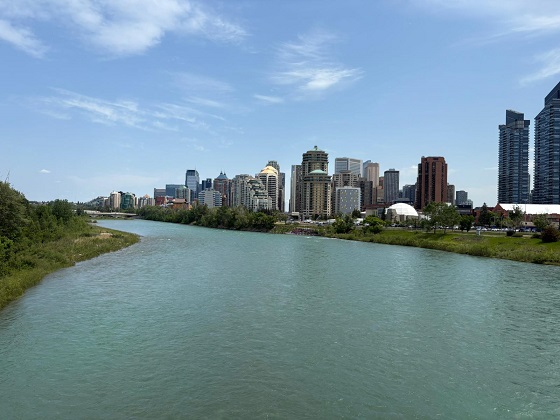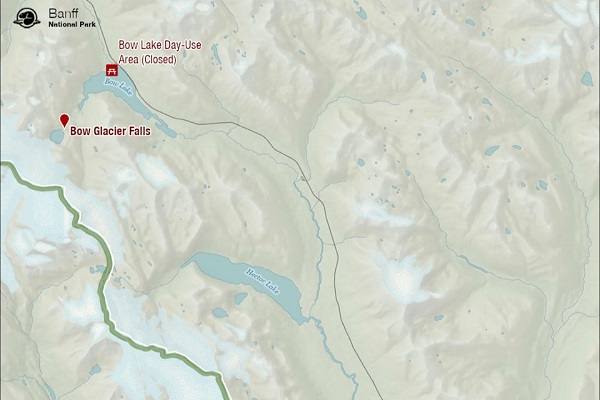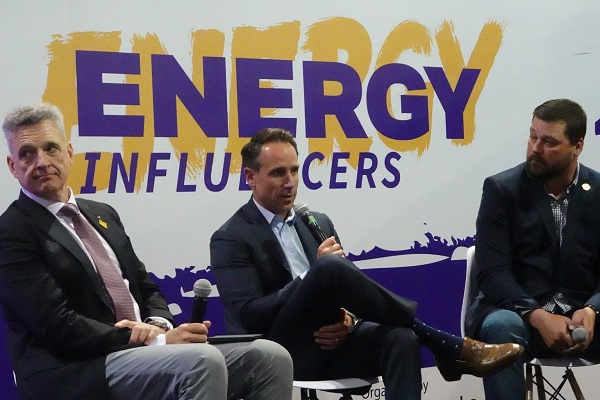Alberta
Saudi oil pivot could shake global markets and hit Alberta hard

This article supplied by Troy Media.
 By Rashid Husain Syed
By Rashid Husain Syed
Riyadh is walking away from its role as oil market stabilizer, signalling a return to market-share battles that threaten prices and Canadian revenues
After boosting crude oil output by 411,000 barrels per day (bpd) in May—triple the originally planned volume—OPEC+ shocked observers by intending to repeat the increase in June, despite slowing global demand and the dampening effects of U.S. trade tariffs.
The decision has ripple effects far beyond the Middle East. OPEC+—the alliance of the Organization of Petroleum Exporting Countries and allies such as Russia—collectively controls about 40 per cent of the world’s oil production. Its actions directly influence global oil prices, which in turn affect everything from gasoline prices across Canada to government revenues in resource-dependent provinces like Alberta.
Is OPEC+ sabotaging itself?
The move contradicts the group’s modus operandi of the past several years. Since 2016, OPEC+, led by Saudi Arabia, has tried to balance global oil markets by curbing output. At its peak, the group cut production by more than five million barrels per day—about five per cent of global supply—with Saudi Arabia alone contributing two-fifths of that total.
This strategy was meant to stabilize prices and ensure petrostates such as Saudi Arabia could meet ballooning budget demands. Many OPEC members remain heavily reliant on oil revenues to fund government spending, with few alternative income streams.
But after years of shouldering the burden, Riyadh appears to have had enough. Reuters recently reported that Saudi officials have been quietly telling allies and industry experts the kingdom is no longer willing to continue absorbing the cost of propping up global prices through deeper cuts.
There is logic behind this frustration. Despite OPEC+ efforts, markets remain volatile. Crude has dropped about 19 per cent this year, briefly touching a four-year low, mainly due to fears that U.S. tariffs will reduce global energy demand.
Some of this instability can be traced to cheating within OPEC+. Several members, including Iraq, Kazakhstan and Russia, have regularly exceeded their quotas, often at Saudi Arabia’s expense.
Riyadh’s patience appears to have run out. “OPEC’s decision framework appears to be fueled by persistent cheating,” noted TD Cowen strategists Dan Ghali and Bart Melek. The group warned in a note to clients that inventories could rise by 200 million barrels in the next three quarters, potentially pushing crude prices into the low US$50 range.
Saudi Arabia has no intention of sacrificing more market share to cover for others. This echoes an earlier episode when former Saudi oil minister Ali AlNaimi, frustrated by similar quota violations and the rise of U.S. shale producers, chose to flood the market to protect Saudi interests. In 2016, he famously told American drillers they could “lower costs, borrow cash or liquidate” as prices sank below US$50 per barrel.
The result was carnage in the oil patch—and a temporary ceasefire among producers.
History may be repeating itself. With other OPEC+ members again failing to meet targets, sources told Reuters that Riyadh is now shifting strategy. Rather than continuing to play the role of swing producer, Saudi Arabia may focus on regaining market share by boosting production, effectively stepping back from the group’s five-year effort to balance prices.
Despite its dependency on oil revenues, the kingdom appears ready to endure lower prices. Media reports quoting government sources suggest Saudi Arabia may increase borrowing and scale back spending to compensate. “The Saudis are ready for lower prices and may need to pull back on some major projects,” one insider told Reuters.
Saudi Arabia needs prices above US$90 per barrel to balance its budget—a higher threshold than other major producers such as the United Arab Emirates, according to the International Monetary Fund (IMF).
Theories abound about the motivations behind the kingdom’s apparent policy shift: retaliation against quota-busting allies, competition with emerging producers like the United States and Guyana, or even an attempt to please U.S. President Donald Trump, who has publicly called for higher OPEC output to ease gasoline prices.
Whatever the motivation, the consequences are real. The IMF has lowered its economic growth forecast for oil-exporting Middle East countries to 2.3 per cent from four per cent projected in October, citing lower prices and rising geopolitical uncertainty. It also revised Saudi Arabia’s growth outlook to three per cent from 3.3 per cent after oil prices fell 13 per cent in the past month alone. This has implications far beyond the Middle East, including for Canada. For Alberta, where oil sales remain a pillar of the economy, weakening global prices mean reduced royalties, tighter fiscal planning and less room for public investment.
As global oil markets enter another uncertain chapter, the aftershocks will be felt from Riyadh to Edmonton.
Toronto-based Rashid Husain Syed is a highly regarded analyst specializing in energy and politics, particularly in the Middle East. In addition to his contributions to local and international newspapers, Rashid frequently lends his expertise as a speaker at global conferences. Organizations such as the Department of Energy in Washington and the International Energy Agency in Paris have sought his insights on global energy matters.
Troy Media empowers Canadian community news outlets by providing independent, insightful analysis and commentary. Our mission is to support local media in helping Canadians stay informed and engaged by delivering reliable content that strengthens community connections and deepens understanding across the country.
Alberta
Calgary taxpayers forced to pay for art project that telephones the Bow River

From the Canadian Taxpayers Federation
The Canadian Taxpayers Federation is calling on the City of Calgary to scrap the Calgary Arts Development Authority after it spent $65,000 on a telephone line to the Bow River.
“If someone wants to listen to a river, they can go sit next to one, but the City of Calgary should not force taxpayers to pay for this,” said Kris Sims, CTF Alberta Director. “If phoning a river floats your boat, you do you, but don’t force your neighbour to pay for your art choices.”
The City of Calgary spent $65,194 of taxpayers’ money for an art project dubbed “Reconnecting to the Bow” to set up a telephone line so people could call the Bow River and listen to the sound of water.
The project is running between September 2024 and December 2025, according to documents obtained by the CTF.
The art installation is a rerun of a previous version set up back in 2014.
Emails obtained by the CTF show the bureaucrats responsible for the newest version of the project wanted a new local 403 area code phone number instead of an 1-855 number to “give the authority back to the Bow,” because “the original number highlighted a proprietary and commercial relationship with the river.”
Further correspondence obtained by the CTF shows the city did not want its logo included in the displays, stating the “City of Calgary (does NOT want to have its logo on the artworks or advertisements).”
Taxpayers pay about $19 million per year for the Calgary Arts Development Authority. That’s equivalent to the total property tax bill for about 7,000 households.
Calgary bureaucrats also expressed concern the project “may not be received well, perceived as a waste of money or simply foolish.”
“That city hall employee was pointing out the obvious: This is a foolish waste of taxpayers’ money and this slush fund should be scrapped,” said Sims. “Artists should work with willing donors for their projects instead of mooching off city hall and forcing taxpayers to pay for it.”
Alberta
Second body recovered from Bow Glacier Falls rockslide. Police identify first victim

News release from the RCMP and Parks Canada
Parks Canada and RCMP continue to respond to a rockslide at Bow Glacier Falls near Bow Lake, approximately 37 km north of Lake Louise in Banff National Park. Search and rescue operations resumed at 6:30 am on June 20, 2025.
RCMP confirm that the individual located deceased at the scene on June 19, 2025, was a 70-year-old female resident of Calgary, Alberta. RCMP also confirm that a second deceased individual was recovered on the morning of June 20, 2025. RCMP is notifying their next of kin and no further information is available at this time. Three individuals transported to hospital by STARS and ground ambulance on June 19, 2025 were all in stable condition at last report.
At this time, there are no additional persons reported missing and no additional unidentified vehicles at the trailhead located at Bow Lake.
Parks Canada and RCMP extend our deepest condolences to the families and friends of the two individuals who lost their lives, our hearts are with them. Our thoughts also remain with those in hospital and we hope for their full recovery.
In a continued effort to complete a thorough assessment, Parks Canada visitor safety teams continue work today with support from a geotechnical engineer with Canada Task Force One (CAN-TF1 Vancouver), as well as members of Canada Task Force Two (CAN-TF2 Calgary) and their partners in the Calgary Police Service.
The safety of first responders and park visitors is our top priority.
Bow Lake and the trail to Bow Hut have reopened. Bow Glacier Falls remains closed to all visitors. The NOTAM (no-fly zone) remains in place to ensure public safety and for park operations. Parks Canada and RCMP thank visitors for giving teams space to work safely.
The Icefields Parkway (Highway 93N) remains open with potential intermittent, short-term traffic stoppages in the vicinity of the incident. Heavy precipitation including snow is occurring on the Icefields Parkway. Please check the weather forecast and Alberta 511 before travelling.
Banff National Park remains open and safe to visit.
Updates will be provided as more information is available.
BACKGROUND:
RCMP AND PARKS CANADA – JOINT STATEMENT #2
June 20, 2025 8:10 AM
Lake Louise, Alberta – On June 19, 2025, at 1 pm Parks Canada received a report of a serious rockfall at Bow Glacier Falls located west of the Icefields Parkway (Highway 93N) near Bow Lake, which is approximately 37 km north of Lake Louise in Banff National Park.
Parks Canada wardens and RCMP remained on site overnight. Parks Canada visitor safety teams will continue working today with support from Canada Task Force Two (CAN-TF2 Calgary), a national disaster response team.
CAN-TF2 is conducting infrared flights, through their partners in the Calgary Police Service, in a continued effort to complete a thorough assessment. A Canada Task Force One (CAN-TF1 Vancouver) geotechnical engineer will conduct a slope stability assessment. The safety of first responders and park visitors is our top priority.
As reported yesterday, one person was located deceased at the location on June 19th. RCMP are working to notify next of kin. No further information about this individual is available.
Bow Lake remains closed to all visitors. A NOTAM (no-fly zone) remains in place to ensure public safety and for park operations. Parks Canada and RCMP thank visitors for giving teams space to work safely.
Alpine Club of Canada guests staying at Bow Hut are safe. Visitors staying at Bow Hut will be able to exit on schedule via the usual route, which is unaffected and safe to travel.
The Icefields Parkway (Highway 93N) remains open with potential intermittent, short-term traffic stoppages in the vicinity of the incident. Heavy precipitation including snow occurring on the Icefields Parkway. Please check the weather forecast and Alberta 511 before travelling.
Banff National Park remains open and safe to visit.
-

 espionage1 day ago
espionage1 day agoFrom Sidewinder to P.E.I.: Are Canada’s Political Elites Benefiting from Beijing’s Real Estate Reach?
-

 Daily Caller1 day ago
Daily Caller1 day agoUnanimous Supreme Court Ruling Inspires Hope For Future Energy Project Permitting
-

 Energy1 day ago
Energy1 day agoWho put the energy illiterate in charge?
-

 Agriculture1 day ago
Agriculture1 day agoUnstung Heroes: Canada’s Honey Bees are not Disappearing – They’re Thriving
-

 Alberta2 days ago
Alberta2 days agoUnified message for Ottawa: Premier Danielle Smith and Premier Scott Moe call for change to federal policies
-

 Economy2 days ago
Economy2 days agoOttawa’s muddy energy policy leaves more questions than answers
-

 Alberta1 day ago
Alberta1 day agoAlberta’s carbon diet – how to lose megatonnes in just three short decades
-

 Business2 days ago
Business2 days agoCanada’s critical minerals are key to negotiating with Trump






